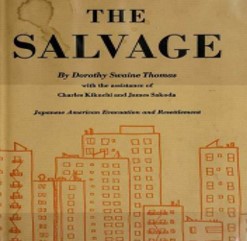
Book
|
The salvage
-- Japanese American evacuation and resettlement
Copies
1 Total copies, 1 Copies are in,
0 Copies are out.
Title
The salvage -- Japanese American evacuation and resettlement
Call No
940.531773
Language
English
Published
Berkeley : University of California Press, [1952]
Publication Desc
xii, 637 pages : graphs ;
Series
Dimensions
25 cm.









